Drupal vs Joomla
May 17, 2023 | Author: Michael Stromann
20
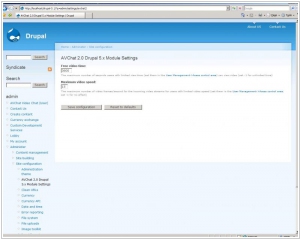
Drupal is a free and open-source content management system (CMS) and content management framework (CMF) written in PHP and distributed under the GNU General Public License. Unlike alternatives it's often used for knowledge management and business collaboration. Because of this plug-in extensibility and modular design, Drupal is sometimes described as a content management framework.
Drupal and Joomla are both popular content management systems (CMS) with their own strengths and characteristics. Drupal is known for its flexibility, scalability, and robustness, making it suitable for building complex and high-traffic websites. It offers advanced customization options, a powerful framework, and extensive modules and themes. Drupal is favored by developers and organizations that require a highly customizable and scalable platform for building large, feature-rich websites and web applications.
On the other hand, Joomla is a user-friendly CMS that strikes a balance between simplicity and functionality. It offers a more intuitive interface, making it easier for non-technical users to manage and update content. Joomla provides a wide range of templates and extensions, allowing users to create visually appealing websites with extended functionality. It is chosen by individuals, small to medium-sized businesses, and non-profit organizations looking for a user-friendly CMS that doesn't compromise on flexibility.
See also: Top 10 Enterprise Portals
On the other hand, Joomla is a user-friendly CMS that strikes a balance between simplicity and functionality. It offers a more intuitive interface, making it easier for non-technical users to manage and update content. Joomla provides a wide range of templates and extensions, allowing users to create visually appealing websites with extended functionality. It is chosen by individuals, small to medium-sized businesses, and non-profit organizations looking for a user-friendly CMS that doesn't compromise on flexibility.
See also: Top 10 Enterprise Portals
Drupal vs Joomla in our news:
2022. Joomla recommends to upgared to 4 version
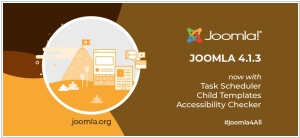
Joomla, the free and open-source CMS designed for publishing web content, has recently launched two new versions: Joomla 4.1.3 and 3.10.9. These updates include bug fixes and various enhancements, such as the addition of a task scheduler, child templates, and an accessibility checker. Built on the model-view-controller architecture, Joomla allows users to develop powerful online applications independently of the CMS, providing the flexibility to create dynamic websites. The latest CMS version, Joomla 4.1.3, empowers users to build websites that can scale and adapt to their evolving needs. While Joomla 3.10 can still be used for new projects, the Joomla team strongly recommends utilizing Joomla 4 for its improved features and capabilities. As Joomla 3.10 is approaching its End of Support (EOS), with less than six months remaining for bug fixes and one year for security fixes until August 17, 2023, users are encouraged to transition to the newer 4.x version. Joomla 4.x, available for nearly a year now, offers numerous enhancements and leverages the latest production versions of PHP, enhancing both the security and performance of websites.
2020. Acquia launches Digital Experience Platform
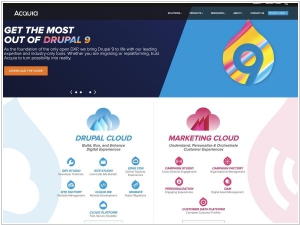
Digital experience company Acquia has announced the launch of its new Acquia Open Digital Experience Platform (DXP). This powerful platform combines Acquia Marketing Cloud and Acquia Drupal Cloud, providing organizations with a unified solution to leverage data and content effectively, enabling the rapid creation of innovative digital experiences. With the Acquia Open DXP, marketers and developers now have access to a single, user-friendly platform for building, personalizing, and orchestrating multi-experience customer journeys across various customer touchpoints, including touchscreens, chat, voice, and more. The platform also offers valuable tools such as Developer Studio, an integrated development environment (IDE), and Site Factory, a robust solution for managing and scaling Drupal 9 sites and applications, making it easier for developers to build Drupal sites. Additionally, the inclusion of CMS Migrate simplifies the transition from older versions of Drupal and legacy CMS to the latest Drupal 9 release.
2015. Drupal 8 is released
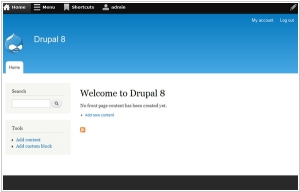
Drupal has finally released the highly anticipated Drupal 8.0 platform, which introduces a range of exciting features and improvements. These include in-context editing and previews, allowing users to see a real-time representation of their content as they edit it. The platform also provides comprehensive content modeling capabilities, incorporating entities, fields, and views right from the start. Users can easily customize content pages, forms, and administrative pages using the intuitive administrative interface. Additionally, Drupal 8.0 offers built-in support for multilingual content and localization, ensuring that websites can be easily translated and adapted to different languages and regions. The platform includes configuration management, enabling seamless deployment of changes between different environments. It adopts a mobile-first approach, ensuring that websites are responsive and optimized for mobile devices, while also delivering HTML5 output. Drupal 8.0 supports native web services, allowing easy integration with other applications and systems through REST. The platform prioritizes accessibility and compliance with WAI-ARIA standards, ensuring an enhanced experience for users with disabilities. It follows modern PHP standards and practices, incorporating popular libraries like Composer, Symfony2, Guzzle, and Twig. Drupal 8.0 focuses on front-end performance, offering improved caching and seamless integration with CDNs and reverse proxies. Furthermore, the platform is fully compatible with PHP7 and supports both PostgreSQL and SQLite databases. Overall, Drupal 8.0 represents a significant advancement in functionality, performance, and flexibility for web developers and content creators.
2005. IBM bemoans Joomla-Mambo split
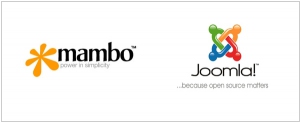
A senior IBM software executive expressed disappointment regarding the Mambo open-source publishing software project and the subsequent emergence of the Joomla project, wherein the developers migrated with the source code. In an interview on Tuesday, Rod Smith, Vice President of Emerging Internet Technology for IBM's Software Group, remarked that it is unfortunate for both the Mambo project and its customers. He noted that the company overseeing Mambo seemed to have veered off course, prioritizing its own interests over those of the open-source community. Smith considered this to be a negative development as Mambo had gained significant traction, and the creation of the Joomla fork undermines its progress. The conflicts arising from such situations are particularly unwelcome among corporate customers. Smith clarified that these customers are not apprehensive about open-source software itself, but they are concerned about the repercussions seen in the Mambo case. Should a similar scenario unfold, it would entail considerable rework and inconvenience for these customers.



